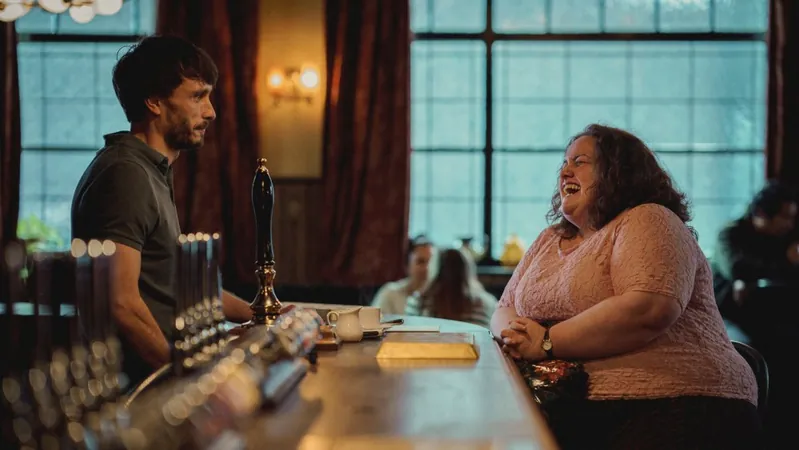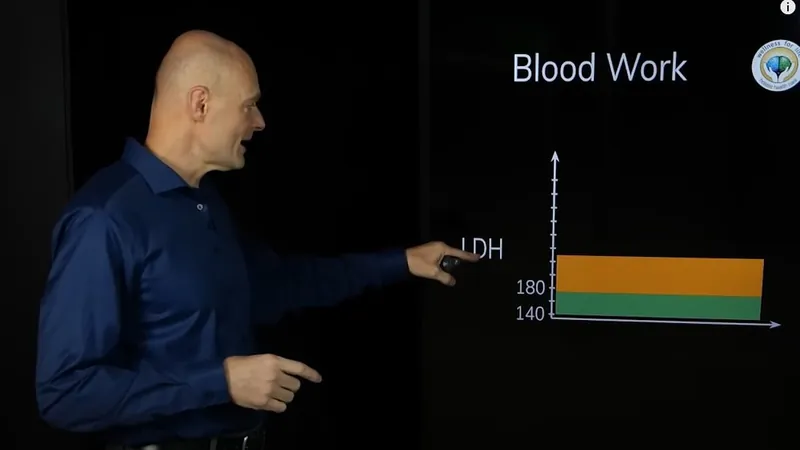
Judge Allows Real-Life ‘Martha’ to Pursue Defamation Suit Against Netflix’s ‘Baby Reindeer’ After Ruling Show Misrepresented the Truth
2024-09-28
Overview of the Case
In a groundbreaking ruling, a judge has cleared the way for Fiona Harvey, the inspiration behind the Netflix series “Baby Reindeer,” to pursue her defamation lawsuit against the streaming giant. The decision came down on Friday, as the judge determined that the series, which opens with the claim 'This is a true story,' failed to accurately represent the events and character of Harvey's life.
Allegations by Fiona Harvey
Harvey, whose life story the series indirectly draws upon, asserts that the show falsely portrayed her as a violent stalker who sexually assaulted the show's creator, Richard Gadd. Gadd, who describes himself as an aspiring comedian, worked at a pub in London where he claims that Harvey had repeatedly harassed him over a number of years. His allegations include claims that she had pinched him and bombarded him with a barrage of emails and voicemails, which prompted him to report her to the police for harassment. However, Harvey was never criminally charged or prosecuted.
Judge's Ruling
Judge Gary Klausner took issue with the stark differences between what occurred in real life and the portrayal in 'Baby Reindeer.' In his ruling, he pointed out that while stalking is serious, there is a significant distinction between that and being 'convicted of stalking.' He further criticized the series for exaggerating Harvey’s actions, explaining, 'There are major differences between inappropriate touching and sexual assault, as well as between shoving and gouging another’s eyes.' He emphasized that the portrayals could lead viewers to misconstrue Harvey's character in a substantially harmful way.
Intentional Infliction of Emotional Distress
Despite Netflix's efforts to dismiss Harvey's claims, the ruling allows her to continue her lawsuit centered on intentional infliction of emotional distress—a claim applicable to particularly egregious false statements that invoke emotional trauma. Klausner noted that the show's implications could easily lead a 'reasonable viewer' to infer that Harvey is a 'convicted criminal who sexually and violently assaulted Gadd,' a portrayal he deemed extreme and potentially damaging.
Richard Gadd's Perspective
Interestingly, Gadd has expressed that while the events depicted in the series stem from his experiences, they were not meant to be taken as a literal recounting of actual events but rather as fictionalized entertainment. Reports have emerged that Gadd had concerns about the inclusion of the phrase 'This is a true story,' which was insisted upon by Netflix, adding a layer of complexity to the case, as it may demonstrate potential malice on Netflix's part.
Conclusion and Future Implications
While Judge Klausner dismissed some of Harvey’s claims, including negligence and punitive damages, the path ahead for her lawsuit remains open as both parties prepare for what could become a closely watched legal battle in the entertainment realm. As the controversy continues to stir discussions about the balance between creative freedom and the responsible representation of real-life figures, the question looms: how will Netflix respond to this judgment, and what implications could this have for future productions labeled as 'true stories'?




 Brasil (PT)
Brasil (PT)
 Canada (EN)
Canada (EN)
 Chile (ES)
Chile (ES)
 España (ES)
España (ES)
 France (FR)
France (FR)
 Hong Kong (EN)
Hong Kong (EN)
 Italia (IT)
Italia (IT)
 日本 (JA)
日本 (JA)
 Magyarország (HU)
Magyarország (HU)
 Norge (NO)
Norge (NO)
 Polska (PL)
Polska (PL)
 Schweiz (DE)
Schweiz (DE)
 Singapore (EN)
Singapore (EN)
 Sverige (SV)
Sverige (SV)
 Suomi (FI)
Suomi (FI)
 Türkiye (TR)
Türkiye (TR)